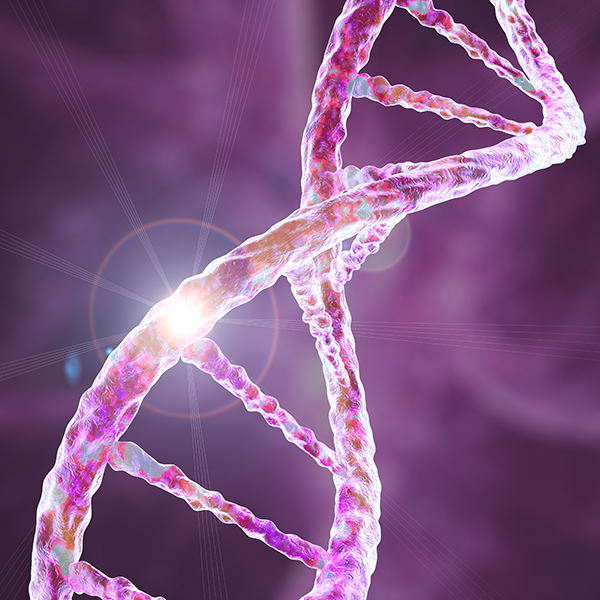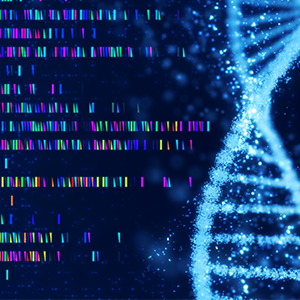-
Individualized Medicine
Science Saturday: Mayo Clinic develops automated system to accelerate diagnoses for patients with rare diseases

Mayo Clinic researchers are working to accelerate the diagnoses of rare diseases and renew hope for patients whose symptoms have defied an explanation ― sometimes for years or even decades.
The team of genomics experts has developed an automated system called RENEW for tracking new scientific knowledge from around the world of pathogenic genetic variants and applying it to Mayo Clinic patients with rare and undiagnosed diseases. RENEW stands for reanalysis of negative whole-exome/genome data.
"We're seeing dramatic growth in knowledge around what causes genetic disease, so we wanted to create a system to consistently track these discoveries," says Eric Klee, Ph.D., a Mayo Clinic bioinformatics scientist within the Center for Individualized Medicine.
An estimated 30 million people in the U.S. have a rare disease, which can be chronic, debilitating and even deadly. Many rare diseases are caused by mutations in genes or chromosomes ― either passed from a parent or occurring randomly in a single person. In some instances, patients with rare diseases search for answers for 10 years or longer, propelled through a marathon of health care provider visits and tests.
Reanalyzing rare disease cases through discovery hub

The launch of RENEW comes at a pivotal time when advancements in genomic sequencing technologies and bioinformatics tools are leading to a greater understanding of the links between genes and disease. Last year alone, researchers within Mayo Clinic and across the globe documented nearly twice as many newly discovered gene-disease variants, compared to five years ago.
Similarly, over just three months, approximately 8,400 new genetic variants were described in one public database alone, and more than 260,000 previously known variants were updated with new information.
"We're seeing dramatic growth in knowledge around what causes genetic disease, so we wanted to create a system to consistently track these discoveries."
Eric Klee, Ph.D.
Dr. Klee says, with RENEW, the latest worldwide gene-disease findings are automatically downloaded every three months from a hub of published discoveries, including from the Human Gene Mutation Database, ClinVar and Online Mendelian Inheritance in Man. New findings are then compared to Mayo's database of patient sequencing results to identify potentially important developments.
"We're able to identify any differences within minutes and then apply those differences to patient data to see if any patients have these new emerging findings," Dr. Klee says.
A key feature of RENEW is a special set of filters that whittle down the new genetic information available since the last analysis and zero in on what could cause the disease.
Alejandro Ferrer, Ph.D., the co-developer of RENEW, uses key pieces of information that allow the system to tailor the filters to each patient's specific characteristics. Dr. Ferrer is a translational omics researcher in Mayo Clinic's Center for Individualized Medicine and Division of Hematology.
"The filter allows only the relevant information to pop up, so new genes and variants that have been added to the database are flagged, as well as important changes to information on known disease-causing genes and variants," Dr. Ferrer explains. "We don't start with a case from scratch. We're building up from the last time that we analyzed the case, and we just focus on what is new."
Dr. Ferrer says the most obvious advantage of this approach is the enormous amount of time and effort it saves.
"Usually, reanalyzing a case takes researchers and clinicians hours or days to sift through published papers that describe new gene-disease links and going through complex patient data to search for clues," Dr. Ferrer says.
The researchers emphasize RENEW does not replace the manual process but rather gives it a boost. So far, they say the results are encouraging.
"Solving a case does not always come with an actionable therapeutic option, but providing patients with an answer to what is the cause of their disease is the most important first step toward finding a treatment," Dr. Klee says.
"We don't start with a case from scratch. We're building up from the last time that we analyzed the case, and we just focus on what is new."
Alejandro Ferrer, Ph.D.
Mayo Clinic investigated approximately 700 rare disease cases in 2021, providing a conclusive diagnosis to nearly one-third of patients, including 14 patients with newly discovered gene-disease associations.
"As scientific understanding continues to expand, my hope is that by reanalyzing data periodically, we can potentially help more people find answers," Dr. Klee says. “We are committed to continue exploring and implementing new approaches to benefit our patients.”
Learn more
Read more stories about advances in individualized medicine.
Register to get weekly updates from the Mayo Clinic Center for Individualized Medicine blog.
Join the conversation
For more information, visit Mayo Clinic Center for Individualized Medicine, or Twitter at @MayoClinicCIM.

Related Articles







